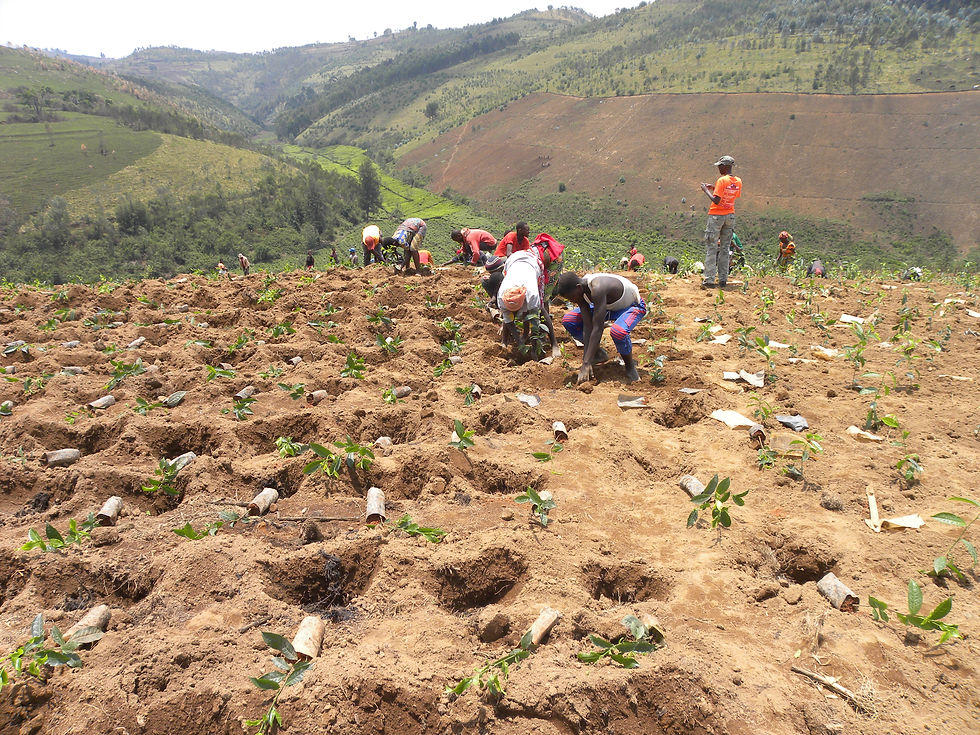Batwa Pygmies

Pygmies, who represent 1% of Rwanda's population, have always lived in the rainforests: they have a centuries-old tradition of gathering and hunting.
For years they have been forced by the government to leave their natural habitat and now live in situations of extreme poverty and marginalization, caused both by the loss of their traditional forest living environment and by racial preconceptions.
In 2008, in order to follow the directives of the central government, the District had to install a few families of Pygmy-Batwa also in the village of Nyamyumba forcing them to leave their territory.
The Nyamyumba community reacted: they did not want them. They were, however, forced to build "houses" crudely and begrudgingly on the edge of the village, with mandatory "umuganda" community work.
From that moment the pygmies were left to themselves and marginalized: already busy with ongoing projects, our association could not take care of them, if not providing clothes and some sporadic help.
In 2013, towards the end of the implementation works of the terraces, a delegation of Pygmies-Batwa came asking for trust and help to Mabawa to improve the difficult living conditions of the community. From that moment, a first project (in partnership with the Rwandan state) of implementation of radical terraces under their houses began. The first prepared and cultivated plots yielded a very satisfactory potato crop and fodder was planted on the walls of the terraces.
The lack of root terraces was only a small part of the problem: the conditions of total neglect in which the 16 families (85 people) found themselves left no choice: they had to be intervened in and give them the same opportunities as the "Great Nyamyumba" communities. After a visit to the project, the Fondazione Margherita adopted with a significant gesture and on the occasion of its tenth anniversary, the entire reconstruction of the houses for the 16 families.
-
They did not have access to water: now they can use the nearest fountain free of charge and they have jerrycans, basins and soap
-
while waiting for them to achieve self-sufficiency and food security, food is distributed to the most vulnerable families and protein flour for malnourished children.
-
the houses, all semi-detached, were built from scratch. As of June 2015, 8 houses (16 families) are finished and in use.
-
the children have been enabled to go to school (uniforms, shoes, cleaning, health insurance and so on) and are attending classes
The government is finally convinced of the need to integrate this minority into the community, but without the involvement of the village head and the entire community of "Great Nyamyumba" it is difficult to achieve.
After initial resistance, today the population's reactions are fortunately positive.

New in 2021
Pygmies have embarked on a new activity: tea cultivation.
This is the main business in Rwanda.
The first results will have to wait at least two years.




Some pictures








































Article in Vogue Italia, March 2015

